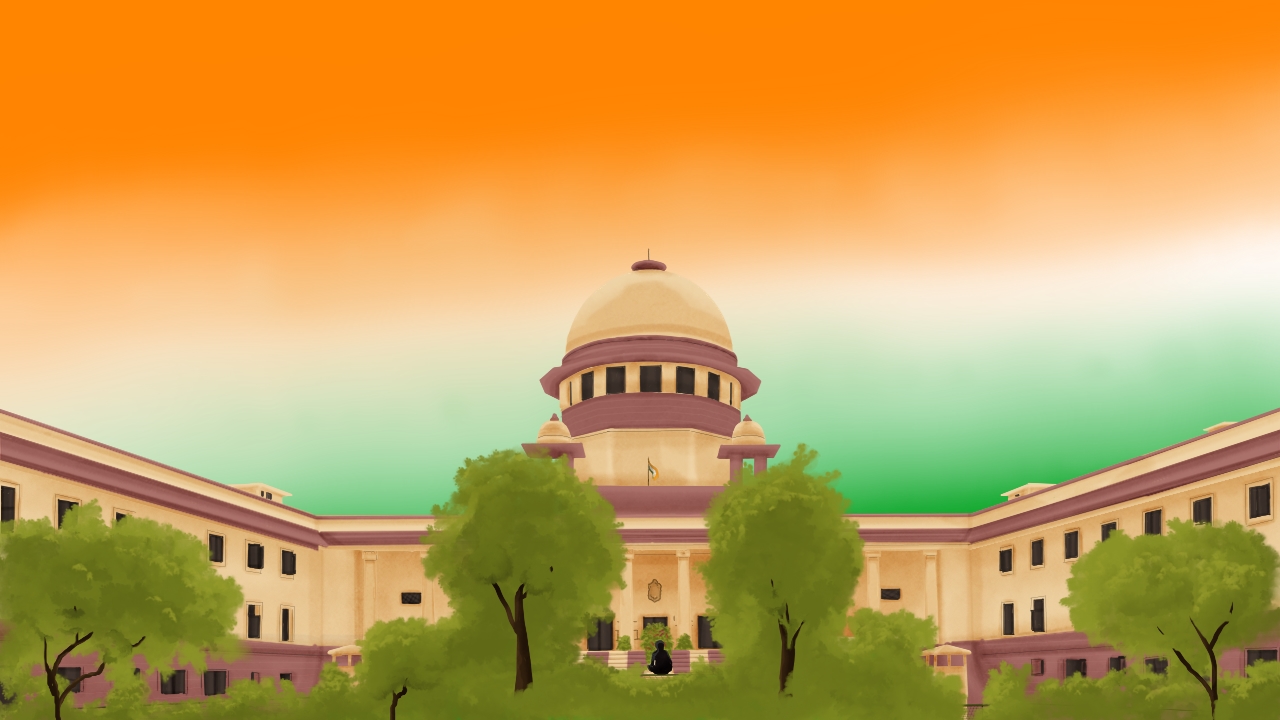


Facts sourced from a statement made by accused is admissible as evidence during trial even if such accused is not in the "formal" custody of the police, the Supreme Court ruled on Wednesday [Perumal Raja vs State Rep by Inspector of Police].
A division bench of Justices Sanjiv Khanna and SVN Bhatti stressed that the pre-requisite of police custody under Section 27 of the Evidence Act, should be read pragmatically, rather than formalistically or euphemistically.Notably, Section 27 allows for the admission of facts that are discovered from statements made by "a person accused of any offence, in the custody of a police officer.""The expression 'custody' under Section 27 of the Evidence Act does not mean formal custody. It includes any kind of restriction, restraint or even surveillance by the police. Even if the accused was not formally arrested at the time of giving information, the accused ought to be deemed, for all practical purposes, in the custody of the police," the Court explained.In doing so, the division bench appeared to disagree with a recent three-judge bench decision in Rajesh & Anr. v. State of Madhya Pradesh, wherein it was held that formal police custody is necessary to make facts obtained from confessions by an accused admissible.However, the two-judge bench in the present case reasoned that there was a Constitution Bench decision in State of U.P. v. Deoman Upadhyaya reported in 1961 which supported the view that "formal" police custody was not necessary."A person giving word of mouth information to police, which may be used as evidence against him, may be deemed to have submitted himself to the 'custody' of the police officer. Reference can also be made to decision of this Court in Vikram Singh and Ors. v. State of Punjab , which discusses and applies Deoman Upadhyay (supra), to hold that formal arrest is not a necessity for operation of Section 27 of the Evidence Act," the division bench added.The top court made the observations while upholding the conviction and life sentence of one Perumal Raja (appellant) accused of murder.The appellant had initially been arrested in connection with the suspected murder of his uncle (a case in which he was later acquitted).However, after his arrest, the appellant divulged to the police that the deceased man's son (appellant's cousin) who had been missing for some time, was also dead. The appellant also disclosed where the remains of the dead body could be found.The police were able to recover the remains of the cousin's dead body based on this statement. However, a question arose over whether this could be used as evidence against the appellant since he was not formally arrested for his cousin's murder when he made the disclosure statement.On Wednesday, the Supreme Court held that such evidence was admissible and that the accused was, from a practical point of view, under police custody when he made the disclosure statement.
"The wide and pragmatic interpretation of the term “police custody” is supported by the fact that if a narrow or technical view is taken, it will be very easy for the police to delay the time of filing the FIR and arrest, and thereby evade the contours of Sections 25 to 27 of the Evidence Act. Thus, in our considered view the correct interpretation would be that as soon as an accused or suspected person comes into the hands of a police officer, he is no longer at liberty and is under a check, and is, therefore, in 'custody' within the meaning of Sections 25 to 27 of the Evidence Act. It is for this reason that the expression 'custody' has been held, as earlier observed, to include surveillance, restriction or restraint by the police," the Court added.Therefore, it dismissed the appeal challenging the conviction and sentence of the appellant.Senior Advocate Colonel R Balasubramanian with advocates D Kumanan, Raghav Gupta, Y William Vinoth Kumar and Ram Sankar appeared for the accused (appellant).Advocates Aravindh S, Abbas and Kavya Geetha represented the Tamil Nadu government.
TAGS: Supreme Court Ruling facts accused admissible formal police custody.